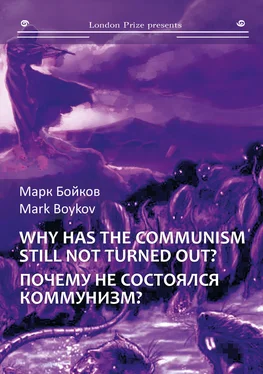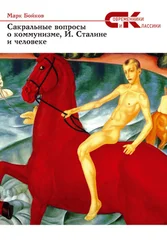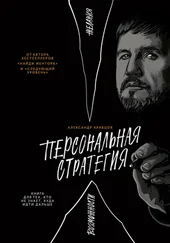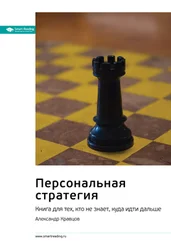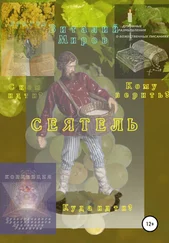At the same time the huge weights of goods that nobody needed accumulated in state warehouses and storehouses representing monstrous waste of social activities. This waste doubled and tripled due to persons’ made up those products getting salaries and bonuses. The nation survived only due to some number of creators who continued to make really valuable products. However the more tensely the nation worked and the more it produced, the poorer it became as the lion’s share of work simply wasted. The official reports about performance and over-performance of plans came from everywhere having a background of shelves in shops becoming emptier and emptier. If would be it the final point in that list of problems…
The enormous turnover of staff was generated in those times, and people worked there where pushed them their needs instead of working where they could apply the abilities. The whole nation creating the Communism has suddenly ceased to experience pleasure in work. The human being has started developing himself mainly as the consumer. Having been convinced of impossibility to earn a prosperity fairly the person started to look for curves, roundabout and shadow ways. He did not shun a deceit and even larceny. He established nonservice contacts with the foreman, the controller and other people whom fixing of its labor contribution and consequently earnings depended on. It preferred the career growth (posts and ranks) to improvement of parameters in work. The spirit of narrow-mindedness, mercenary thrift and bribability got into all his attitudes. Everything fair and advanced in this atmosphere suffered from stress of alienation, pressure of animosities, tearing away. There was a real false for socialist ideals.
During those times all those burbulises and gaydars, shatalines and yavlinskys, lyvshytses and chubayses, yasyns and others (T: there are the names of Russian politicians of liberal orientation who had played a appreciable role in early 90-th of XX in process of liberal reforms in the USSR and then in Russia) all these future petrels of counterrevolution, had been doing their careers (They are making their careers from the first sigh up to a grave. Be afraid of such well-wishers). They consider the economy quite out of touch with the human being and ignoring all possible communications as the closed self-sufficing system, as a transcendental object, they write Monblans of dissertations aiming to consecrate economic robbery of the party, state and scientifically-academic elites which have merged in ecstasy of privileged consumption. The work-rates abnormal growth and depreciation of work in the meantime nonplussed the economy, nevertheless nobody consider the situation as a real problem.
The individual was even more awfully nonplussed. When WQs (T: – see above)had raised and wage rates had decreased, loadings naturally increased, becoming quite often otherwordly. The accelerated deterioration of a labour took place, the everyday “weariness” became chronic and in turn chronic weariness aggravated everyday. Only illness or binge could pull out from this roundabout. The drinking-bout however easily turned into illness. Firstly the person spent extra earnings for drinking-bout. Then, when a habit to alcohol appeared, the person started to spend salary for binge.
And after binge had turned to drunkenness the wage or salary appeared to be insufficient as payment for binge. Suppression of a sustainability of the person has changed into his destruction. That is why it is incorrect to speak that drunkenness is one of the social protest forms.
Actually, when WQs are constantly raising the working day takes away so much energy from the individual that he has no power for anything else after leaving the factory. The interesting meeting, sports activity, reading a book or playing with children – all and everything demand force and desire. But the person has nothing. All desires are suppressed, all energies were spent. The more worthless the manufacturing system is organized the greater physical and psychological recourses it takes away. Accordingly the manufacture dominates over the person outside the enterprise.
If the person leaves work place completely tired and nothing would be desirable to him (her), this is a true attribute that his essence is exhausted. In such case the Big Binge sometimes often looks as most simple means “to rise from ashes”. Trying again and again to feel himself as the person, the person it in the paradoxical way kills himself finally.
Alas, it is not drunkenness which to ruin humanity in the human beings. It just finishes that was begun by nasty organized manufacturing system. The manufacturing system that compel the person to make out the worse product it could be, which forces the person to operate contrary to his conscience and abilities. Thus loss of quality hides loss of human essence of the worker. That’s why drunkenness was spreading around all over the nation so quickly and widely directly depending on wage-rates dressing-down and labor intensity increase. So during Gorbachev epoch when the struggle against revelry of drunkenness began (certainly without explanation of its original reasons and by using only command and prohibitive methods) it only added fuel to fire. The people have become embittered, authority of a power went downhill. Any system will be doomed, if starts to collapse the person substancability. It’s so happened on every history’ landmark.
To improve something is necessary to understand before the real reason of worsening.
The story began during hard post-war times, in days of Stalin. In process of restoration of the facilities destroyed by war, work-quotas and wage-rates varied as well to fill the market with the goods. However in days of Stalin those measures were accompanied by annual price-cuttings.
Thus surplus labor taken way from the worker came back to him in form of surplus consumption. Such balance harmonized attitudes of the person and the state. After Joseph Stalin’s death price-cutting stopped while revisions of wage-rates and work-quotas proceed. After N. Khrushchev ‘s coming to power (the CPSU General Secretary in 1956–1965, took the first attempt to reform the Soviet political system), the prices started growing and the worker was caught in a snare.
Frankly speaking, sometimes the wages and salaries were raised: the injections of growth were done to some then to another strata of workers. In fact it meant that government bureaucracy gave to some people the very piece of “money pie” that had been taken away from the others. Instead of allowing people to earn themselves the bureaucracy presented them miserable pittances named by “a huge social gain”. Destroying the valid interest in honest work the ruling elite tried to replace it with political enthusiasm. One injustice was heaped up on another, the good worker has been mixed with the bad one, and even the very accommodation and redistribution of investments led only to moving mismanagement from one branches of the industry to others. Certainly these wage increases had resolved no one problem and only aggravated an economic situation. The economics degradation was proceeding.
The situation was just out of control, but the ruling elite did not understand an essence of the events. It absorbed the illusions the economic science fed it. And the political economy in the USSR just had broken its neck due to ignorance of the valid source of growth of labor productivity. The Communism had been under construction for many years already, but the nation continued to base itself on “working class”, on an intensification of physical labour using the meanest receptions of that intensification. Let’s add to this list of problems the “class struggle” against the whole world, named the “cold war”. The output of tanks, rockets, planes, submarines, bombs accrued in mad quantities. Let’s add the politically-motivated assistance to poor nations and non-equal trade with the states of socialist block. Let’s add to the list the so-called “projects of the century”: development of virgin lands, drainage of bogs and irrigation of deserts, turns of the rivers, etc. All of that – at the expense of toilers and workers.
Читать дальше
